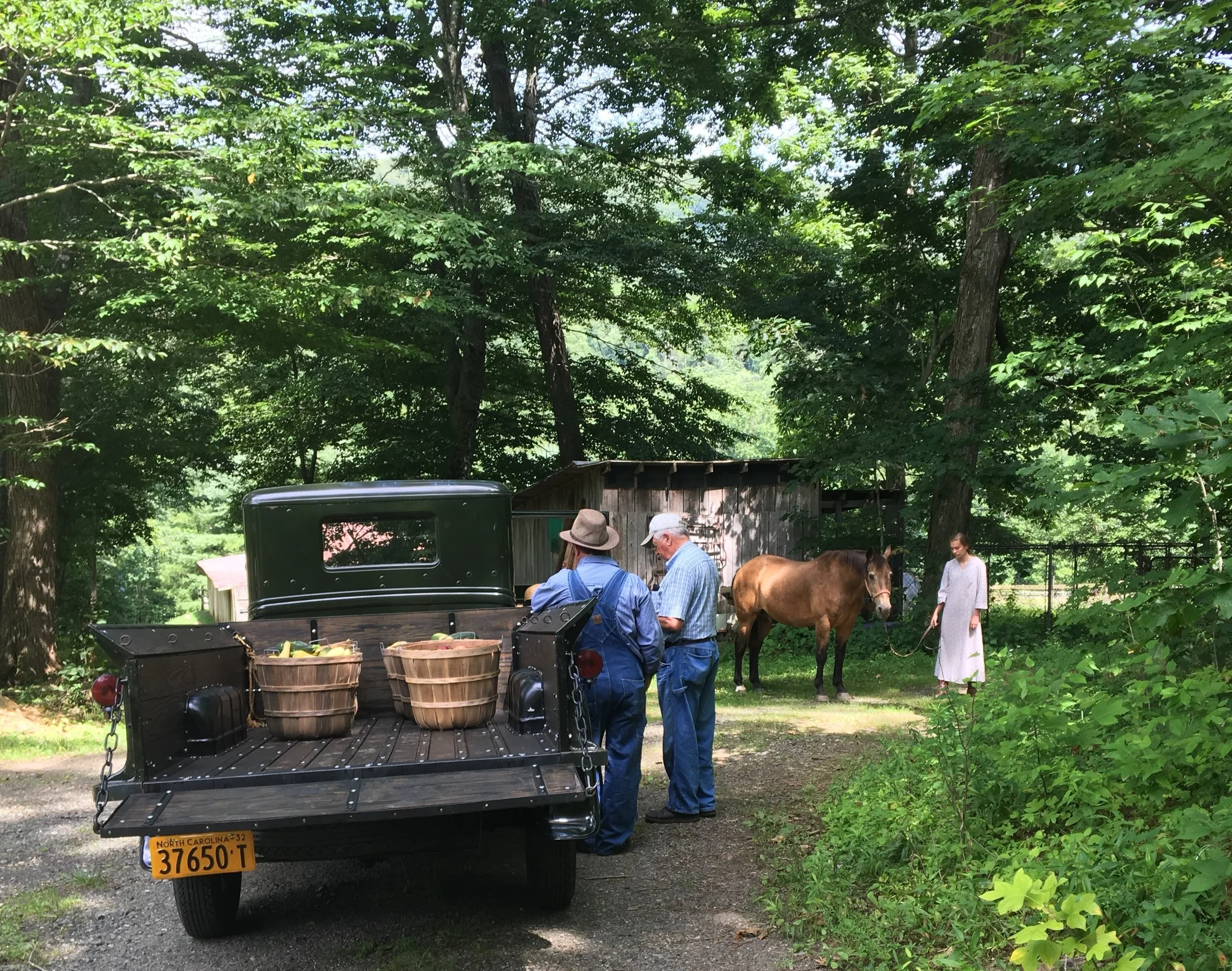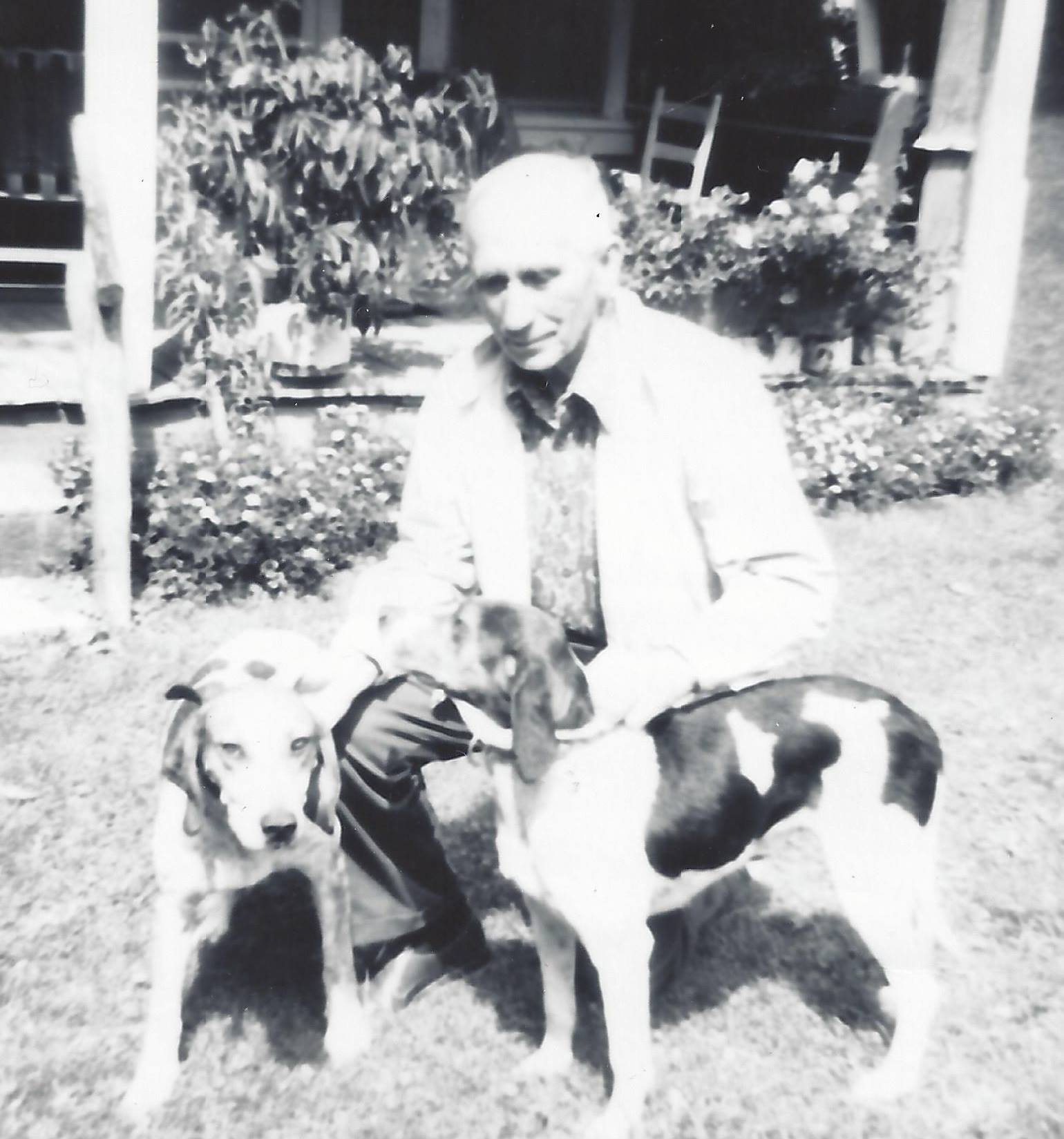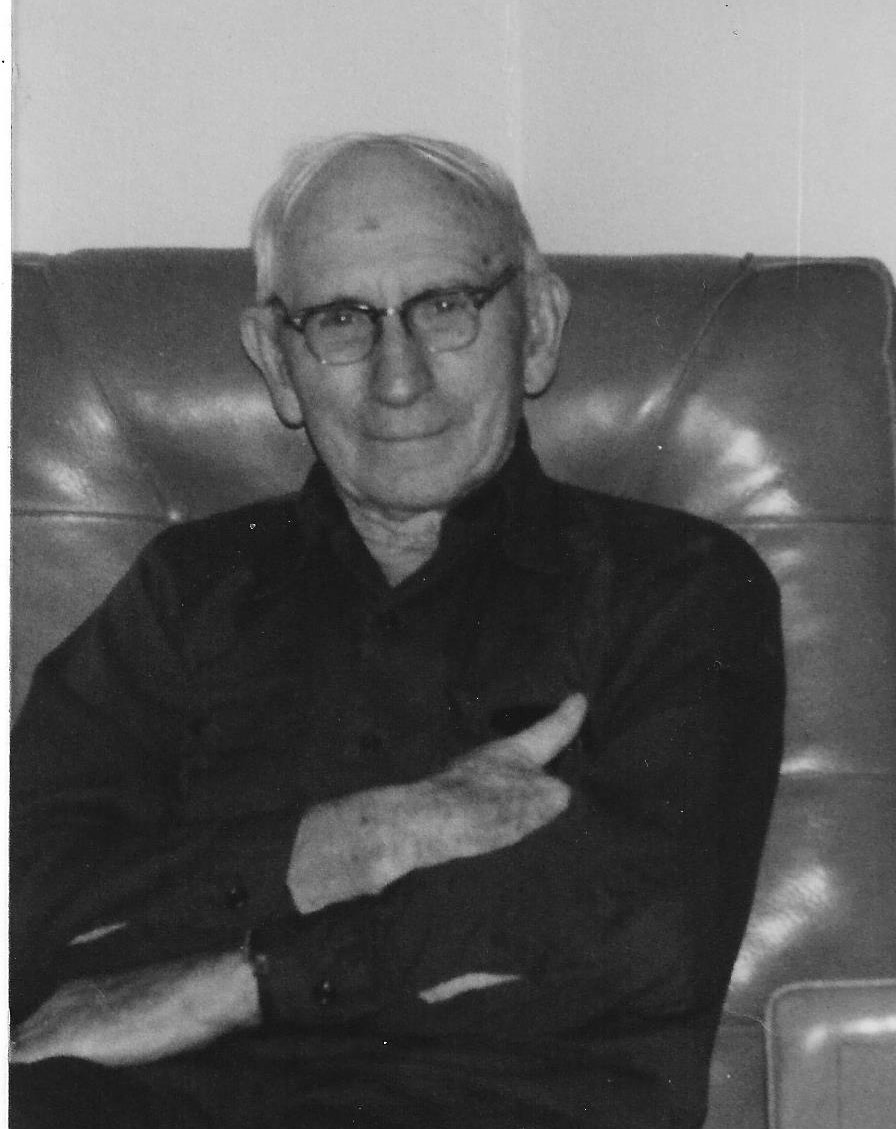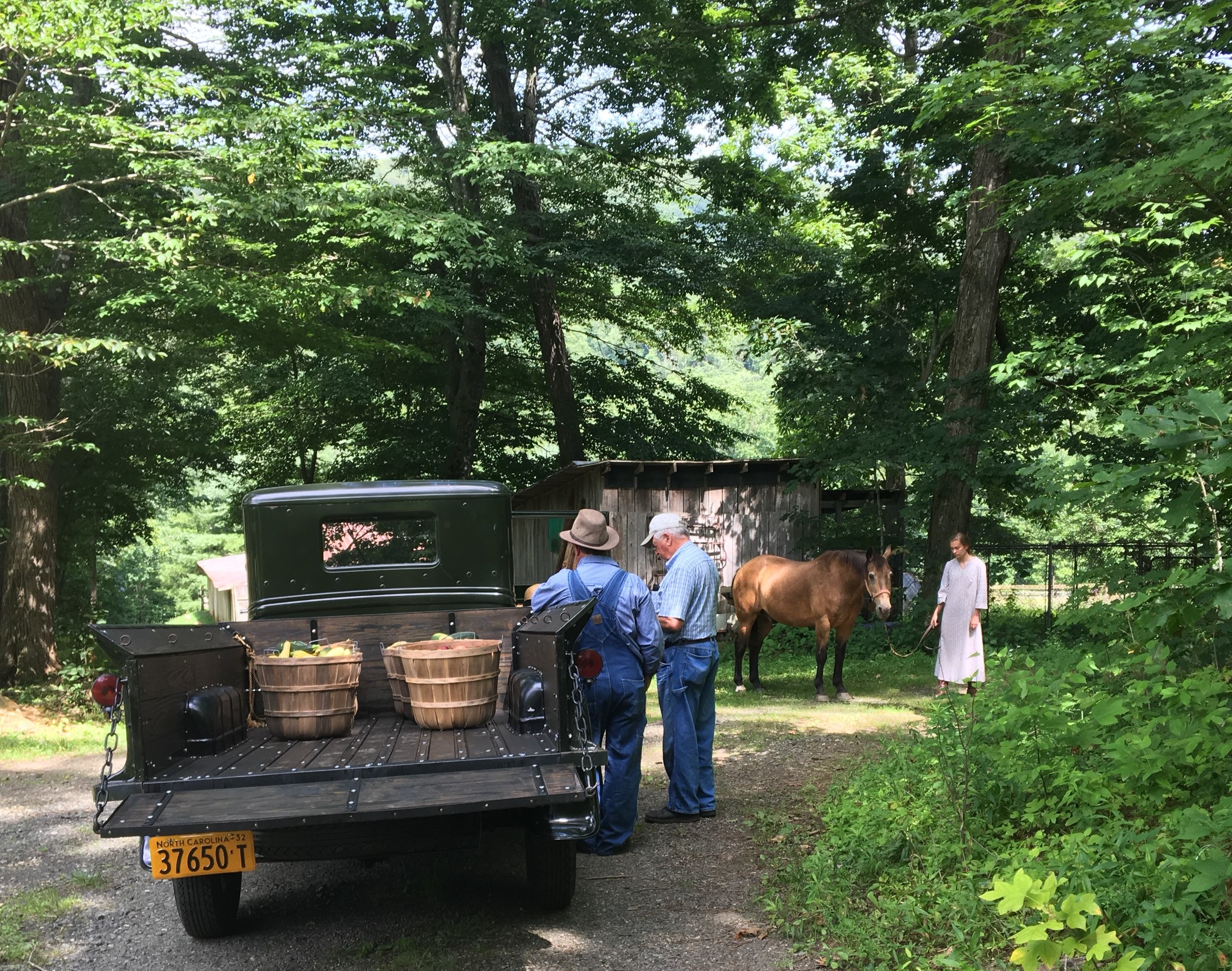The pocket watch had a shiny silver-toned back, a big honest face, and it ticked loudly. I was maybe five or six when I got it, but I remember it clearly. It was the sixties, but you would have never known it in the little mountain town of Boone where I grew up. Time moved slowly there. I purchased the watch at the local dimestore downtown. It was extra special to me because I had bought it with my own allowance money. I think that the watch cost a dollar. I’m not quite sure why I preferred a pocket watch over a doll or stuffed animal, but I carried it around in my blue jeans pocket with pride, and I smiled every time I heard that loud, echoing ticking with its never ceasing reminder of the passing of time.
Of course I didn’t realize the ephemeral nature of childhood at that age; back then I only knew that I was mesmerized by that cheap old watch, couldn’t wait to pull it out and demonstrate that I knew how to decipher the hours of the day by the position of the hands on its face--how its Robin Hood style arrows would point to the numerals and then, without fail, order my first grade existence. The big orange school bus picked me up when the little hand pointed to the seven and the big one to the twelve; recess occurred precisely when the little hand touched ten and the big one twelve; I was able to get off the bus and cross the bridge over the creek home when the little arrow pointed toward three and the big one claimed twelve. The watch in effect, pointed me toward home.
A week or two after I got the watch—and long before its silver had a chance to wear off--we visited my grandparents. We did it every Sunday, just about without fail. Sometimes other cousins were there as well, which always made me happy because otherwise Sunday afternoons mainly consisted of respectful visits in the front room or on the front porch. We would try to be extra quiet and patient as the grownups caught up on the happenings of the week. But when my cousins were there, we were allowed to run around in the hay fields bordering the yard and if we were lucky, my father –also antsy at the slow pace of the conversation—would take us down to the waterfall just down the road, and we were able to imagine universes crashing down the rocks as we waded at the bottom.
But that day, my little sister, Ann, and I were the only grandchildren there. We got out of the red Falcon station wagon that my dad used to carry goats and chickens and dogs (in addition to us). I ran through the yard populated by dahlias and holly hocks and into the house. I was eager to show my grandfather my new treasure. I knew that he would think that watch was really special. He enjoyed the same kinds of things I did-- like watches, dogs, and being outside. Grandpa Baird was sitting in his favorite armchair in the front room. I rushed toward him, holding the watch in my outstretched hand to make sure that he saw it immediately. And I’ll never forget the look of excitement on his face when he saw me with it. “Granddaughter,” he asked “it is for me?” It was a statement, not a question. My heart sank as I realized that he thought the watch was a gift for him, and I knew that there was no way I could disappoint him. I nodded (bravely I thought!) and agreed, “Yes, Grandpa, it is a gift for you.”
So I gave it to him. I don’t remember much more about it except the smile that broke across his face. And the fact that it—for just a minute in time—broke my six year-old heart.
But of course it didn’t really; those notions are for Robin Hood stories and fairy tales. I was sad to give up my watch but then, as kids do, I quickly moved on in time to other event and happenings. Time does not stop for any pocket watch; it marches on, whether or not any of us –young or old--pays attention to where the hand of a dimestore clock stops or starts at any given moment.
Life went on. I grew up, left the mountains where my grandfather and I grew up. He and his armchair became a distant memory as I made my way though college, marriage, and motherhood. I did not get to attend Grandpa Baird’s funeral because I was out of the country when he died. My sweet grandmother had been long gone before him so it was left to my mother and her sisters to tidy and divide his things.
I don’t know what happened to the watch—or to the time that eventually separated me and many of the folks who had watched over me and nurtured me as I grew up. Over time, I lost my mother—then, my father—and the same eternal watch seemed to govern all of us as I moved back to the mountains and, together with my own family, reclaimed a family farm in the area not far from where my parents grew up. My own daughters grew up and moved away.
But I never completely forgot that watch. Occasionally I would recall it and my grandfather with a smile and think about all the moments that had passed since I was that little girl so enamored of a shiny timepiece. I had long stopped wearing any watch, preferring instead to use my smartphone a way of organizing time. As an adult I no longer measured time by the simple movements of the second hand of a watch; instead I measured it in deadlines met and tasks yet to be completed. And there never seemed to be enough time to go around.
But then, quite by accident, a movie about Appalachia was filmed at our place. Called The Mountain Minor, it was based on a story that my own grandfather and parents could have written. It was the story of leaving and then coming back, of time’s clock relentlessly drawing us to her big honest face. It was also a movie steeped in mountain tradition and mountain music. For a month, our little mountain valley was filled with the sound of old-time fiddle music. The movie production brought all sorts of people—singers, actors, and fiddlers-- to our humble farm. We did not know most of them, but we appreciated the kindness and respect that undergirded their attitude toward our farm and all the history that made it a real place. They were people interested in telling a real story—and in doing it in the most genuine way possible.
Mr. Lynn Castle was one of those people. An old car and history enthusiast, he helped provide a vintage truck to the movie set. He also happened to be a watch collector, and his interest in watches came in part from his grandfather. Mr. Castle wore clean, pressed blue jeans and a billed cap. Although I had never met him before, I discovered to my delight and surprise that Mr. Castle was local and had gone to school with my aunts and uncles. Even sweeter, he remembered my father who had been close in age to him.
Mr. Castle and I shared a nice afternoon making old family connections and swapping stories as we watched the actors drive the old truck over the dusty old logging roads that crisscrossed our farm. The actors wore overalls, and Mr. Castle pointed out that back in the day each would have had a pocket watch tied by a shoestring to the bib of the overalls. As the dust settled, I remember telling him about the watch I gave my grandfather. I described the pocket watch to Mr. Castle, and we laughed about dollar watches and how they don’t make them anymore. Later I told my aunts and uncles about meeting him, and everyone remembered him as being a kind and generous person, and a good neighbor to all.
I found out just how generous just this last week. It had been over six months since the movie crew visited our farm and filmed the Mountain Minor. But just a few days ago, right out of the blue, Mr. Castle showed up at the farm. He had not been sure of our phone number or how to reach us, but nevertheless he got in his car and drove all the way to our house to deliver a gift. A gift for someone he hardly knew.
It was a Westclox Bull's Eye pocket watch! Well worn from use through the decades, it nevertheless had the same shiny back, the same loud tick, and the same big honest face as the one from my childhood. Mr. Castle explained that he’d been looking for a dollar watch that worked ever since hearing my story, and when travelling in Florida had finally found one and bought it for me.
I smile every time I hear its loud, boisterous ticking. Fifty years ago, I gave away my pocket watch. This week it came back to me, a relic of my childhood, still ticking-- a tangible reminder that while time moves onward, the things that really matter, like kindness, decency, and generosity, are eternal.
By Betty Miller Conway......






